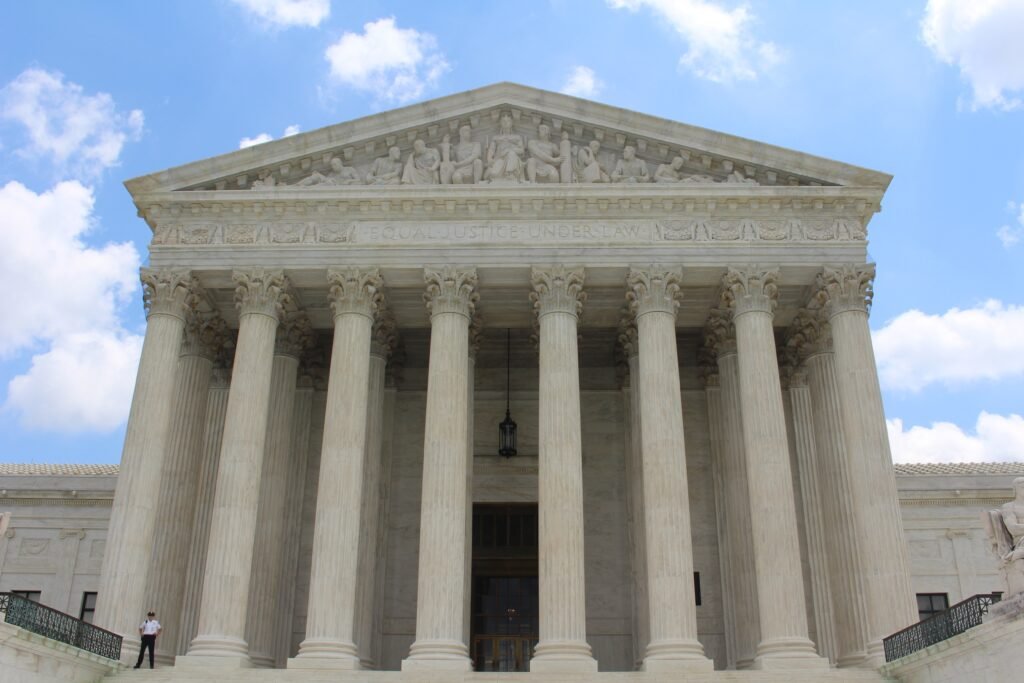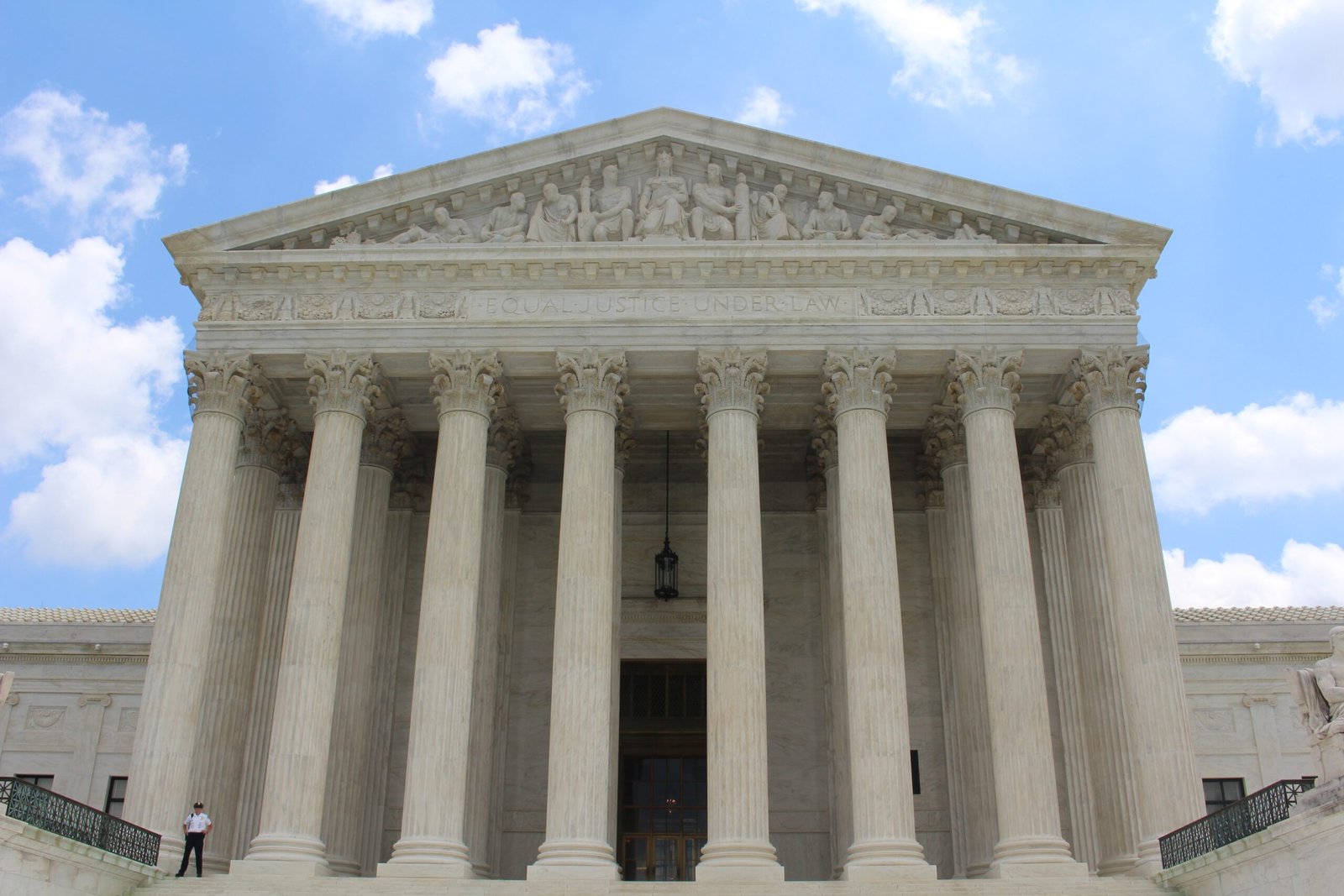Artificial Intelligence (AI) has transformed various industries and revolutionized the way we live, work, and interact with technology. But have you ever wondered who truly owns AI? This article explores the ownership of AI, shedding light on the complex web of intellectual property rights, legal frameworks, and ethical implications surrounding this rapidly advancing technology. From tech giants to individual inventors, let’s unravel the intricate question of who truly owns the power of artificial intelligence.

Ethical Considerations
Artificial intelligence (AI) has the potential to revolutionize various aspects of our lives. However, as with any powerful technology, it is essential to consider the ethical implications that arise from its development and use. AI raises several ethical considerations that need to be addressed to ensure responsible and accountable deployment.
Legal Frameworks
One crucial aspect of the ethical discussion surrounding AI is the establishment of legal frameworks. These frameworks provide a set of guidelines and regulations that dictate how AI should be developed and used. They aim to prevent the misuse of AI technology and protect the rights and interests of individuals and communities.
By implementing legal frameworks, governments and policymakers can ensure that AI is used in a manner that aligns with societal values and respects fundamental human rights. These frameworks can cover aspects such as data privacy, algorithmic transparency, bias detection and mitigation, accountability, and the responsibility of developers and operators.
Bias and Discrimination
Bias and discrimination in AI systems is another important ethical consideration. AI algorithms are trained on large datasets, and if these datasets contain biases or discriminatory patterns, the AI systems can perpetuate and amplify such biases in their decision-making processes.
To address this issue, it is crucial to ensure diverse and representative datasets are used during the training of AI systems. Additionally, ongoing monitoring and auditing of AI systems can help identify and rectify any biases that may arise during their deployment.
Transparency and Accountability
Transparency and accountability are fundamental principles for ensuring ethical AI development and use. AI systems should be designed and operated in a manner that allows them to be explainable and understandable. This transparency enables users and stakeholders to comprehend how decisions are being made, providing an opportunity to address any concerns or challenges that may arise.
Moreover, developers and operators of AI systems should be held accountable for the outcomes of their technology. This accountability can be enforced through mechanisms such as third-party audits, adherence to ethical codes of conduct, and legal obligations.
Privacy and Data Security
As AI systems increasingly rely on vast amounts of data, ensuring privacy and data security becomes critical. AI technology often processes personal and sensitive information, making it imperative to protect individuals’ privacy rights and secure their data.
To address these concerns, robust data protection mechanisms must be implemented, including strict data anonymization and encryption practices. Clear consent mechanisms must also be established to inform individuals about how their data will be used by AI systems and to obtain their consent.
Intellectual Property
Intellectual property (IP) plays a significant role in the development and deployment of AI. Several categories of IP rights are relevant in the AI field, including patents, copyrights, and trade secrets. Ensuring a balanced approach to IP protection is crucial to foster innovation and encourage collaboration in the AI ecosystem.
Patents
Patents provide legal protection for inventions and technical solutions. In the context of AI, patents play a vital role in encouraging research and development by granting exclusive rights to inventors for a limited period. However, AI patents can also raise concerns related to the potential for patent thickets, where overlapping or excessively broad patents hinder innovation and competition.
To strike a balance, patent offices and policymakers need to carefully examine AI patent applications to ensure that they meet the criteria of novelty, non-obviousness, and industrial applicability. Additionally, mechanisms for patent pool formation and licensing agreements can facilitate fair and equitable access to AI technologies.
Copyrights
Copyright is another form of IP protection that comes into play in the AI domain. Copyright law grants authors exclusive rights over original creative works, such as software code or written materials. In the context of AI, copyrights can arise in various ways, such as protecting the code of AI algorithms, training datasets, or outputs generated by AI systems.
To address the challenges surrounding copyrights in AI, it is essential to ensure a proper balance between protecting the rights of creators and promoting open access to AI-generated outputs. The concept of fair use and fair dealing can be applied to allow for reasonable use of copyrighted materials in the context of AI research and development.
Trade Secrets
Trade secrets are another valuable form of intellectual property rights in the AI field. Trade secrets refer to confidential and proprietary information that provides a competitive advantage to an organization. In the context of AI, trade secrets can include proprietary algorithms, training methodologies, or unique datasets.
To protect trade secrets, organizations need to implement robust security measures, such as access controls and non-disclosure agreements. Additionally, legal frameworks can provide avenues for seeking legal remedies in cases of trade secret misappropriation.
Corporate Ownership
The ownership of AI technologies and systems is primarily divided among tech giants, startups, and through partnerships and collaborations.
Tech Giants
Tech giants, such as Google, Amazon, and Microsoft, have been at the forefront of AI development and deployment. These companies possess substantial financial resources, access to vast amounts of data, and deep technical expertise. As a result, they often own and control significant AI technologies that impact various industries and sectors.
The dominance of tech giants in the AI landscape raises concerns regarding concentration of power, potential monopolies, and unfair competition. To address these concerns, regulators and policymakers need to ensure fair competition, promote interoperability and data portability, and establish measures to prevent the abuse of market dominance.
Startups
Startups play a critical role in AI innovation, often pushing the boundaries and developing disruptive technologies. These entrepreneurial ventures bring fresh ideas, agility, and the potential for groundbreaking solutions. However, they often face challenges such as limited access to resources, lack of funding, and difficulties in scaling their operations.
To support AI startups and encourage innovation, governments and private investors can provide financial support, mentorship programs, and regulatory frameworks that facilitate easier market entry. Collaboration between startups and established organizations can also foster knowledge exchange and accelerate the development and deployment of AI technologies.
Partnerships and Collaborations
Partnerships and collaborations between different organizations are instrumental in the development and ownership of AI technologies. These partnerships can involve academia, industry, government entities, and non-profit organizations, bringing together diverse expertise and resources.
By collaborating, organizations can pool their resources, share knowledge, and collectively address complex challenges associated with AI. Public-private partnerships, for example, can facilitate the transfer of technology from research institutions to industry, allowing for more rapid and responsible deployment.
Government Stake
Governments around the world have recognized the significance of AI and its potential impact on society. As a result, they have started to develop national AI strategies, provide public funding, and establish regulatory frameworks to govern the development and deployment of AI technologies.
National AI Strategies
National AI strategies outline a country’s vision, objectives, and approach to AI development and use. They typically involve investment in research and development, promoting AI education and skills training, and fostering collaboration among different sectors.
Through national AI strategies, governments aim to position their countries as leaders in AI innovation, create economic opportunities, and address potential ethical and societal challenges. These strategies provide a roadmap for governments to engage with stakeholders, develop AI policies, and guide the responsible adoption of AI technologies.
Public Funding
Public funding plays a crucial role in driving AI research and development. Governments provide financial support through grants, subsidies, and other funding mechanisms to academia, research institutions, and startups to facilitate the advancement of AI technologies.
Public funding not only accelerates technological breakthroughs but also ensures that the benefits of AI are accessible to a wider population. It helps to democratize the development and ownership of AI technologies, preventing their concentration among a few entities.
Regulation and Oversight
Regulation and oversight are essential to govern the development and deployment of AI technologies responsibly. Governments need to establish clear rules, standards, and guidelines that set the boundaries for AI applications. Effective regulation can prevent the misuse of AI, protect citizens’ rights, and ensure that AI is aligned with public interest and values.
Regulatory frameworks may cover aspects such as data ethics, algorithmic transparency, safety and reliability, privacy protection, and accountability mechanisms. Collaboration and coordination among governments, intergovernmental organizations, and standard-setting bodies are crucial to develop consistent and globally recognized AI regulations.

Academic Contributions
Academia plays a vital role in advancing AI research and knowledge. Universities and research institutions make significant contributions to the development of AI technologies, ethical frameworks, and educational programs.
Universities and Research Institutions
Leading universities and research institutions around the world conduct cutting-edge AI research. They contribute to the advancement of AI technologies, develop novel algorithms, and explore new applications across various domains.
Moreover, universities and research institutions often collaborate with industry partners, government entities, and other organizations to bring their AI innovations from the lab to real-world applications. This collaboration enables knowledge transfer, fosters interdisciplinary research, and ensures that AI developments are grounded in real-world challenges and requirements.
Open Source Initiatives
Open source initiatives in AI have been instrumental in driving innovation and accelerating the adoption of AI technologies. These initiatives involve the development and sharing of AI frameworks, libraries, and tools that are freely available to the public.
Open source AI initiatives, such as TensorFlow and PyTorch, have democratized access to AI technology, allowing developers worldwide to build on top of existing foundations. Open source models also enable the AI community to collaborate, iterate, and improve AI algorithms, fostering a culture of transparency, inclusivity, and collective intelligence.
Academic-Industry Collaboration
Collaboration between academia and industry is crucial for bridging the gap between AI research and its practical applications. Through such collaborations, academic researchers and industry practitioners can leverage their respective expertise and resources to drive innovation and develop impactful AI solutions.
These collaborations can take various forms, including joint research projects, technology transfer programs, and the establishment of AI research centers within industry organizations. By combining academic rigor with industry insights, these partnerships accelerate the development and adoption of AI technologies while fostering responsible practices and ethical considerations.
Individual Creators
AI technologies are not solely developed or owned by large organizations. Individual creators, including scientists, engineers, independent developers, freelancers, and consultants, also play a significant role in shaping the AI landscape.
Scientists and Engineers
Scientists and engineers working in academia, research institutions, and industry contribute to the development of AI technologies through their innovative research, technical expertise, and practical implementations. Their breakthroughs and contributions drive the evolution of AI algorithms, systems, and applications.
Moreover, individual scientists and engineers often publish their findings, present at conferences, and share their knowledge with the broader community. This culture of collaboration and knowledge exchange nurtures the growth of AI and encourages responsible and ethical practices.
Independent Developers
Independent developers play a vital role in AI innovation through their entrepreneurial spirit, creativity, and passion. These individuals develop AI applications, build AI-powered startups, and contribute to the open-source community.
By empowering independent developers with access to AI tools, frameworks, and resources, technological advancements become more diverse and inclusive. Independent developers contribute to a decentralized ownership model, democratizing the development and deployment of AI technologies.
Freelancers and Consultants
Freelancers and consultants with AI expertise offer specialized services to organizations, helping them understand, adopt, and implement AI technologies. They provide valuable advice, assistance in AI strategy development, algorithm design, and implementation support.
As the demand for AI expertise grows, freelancers and consultants play a crucial role in bridging the skills gap and enabling organizations of all sizes to leverage AI effectively. Their contributions and expertise contribute to a more inclusive ownership landscape, allowing a wide range of organizations to benefit from AI technologies.

User Data Control
AI systems often rely on vast amounts of user data to train and improve their capabilities. However, it is essential to ensure that individuals retain control over their data and have the ability to make informed decisions regarding its use.
Data Collection and Consent
Transparent and ethical data collection practices are fundamental to user data control. Organizations should inform users about the types of data being collected, how it will be used, and obtain explicit consent before gathering and processing personal data.
Moreover, organizations should follow privacy-by-design principles, where data protection measures are integrated into the design and development of AI systems from the outset. This approach ensures that user data is handled responsibly, respecting privacy rights and minimizing the potential for misuse.
Data Ownership and Rights
Clarifying data ownership and user rights is crucial in the context of AI. Users should have clear ownership rights over their personal data and the ability to exercise control over how it is used, accessed, and shared.
Data protection regulations, such as the General Data Protection Regulation (GDPR), include provisions that grant individuals the right to access, rectify, and delete their data. These regulations also require organizations to provide individuals with greater transparency regarding the use of their data, making data practices more accountable and empowering individuals to exercise control over their personal information.
Platforms and User Agreements
Platforms that collect and process user data should establish user agreements that are clear, accessible, and easily understandable. These agreements should outline how user data will be used, shared, and protected, and provide individuals with options to control their data preferences.
Platforms can also incorporate user-friendly privacy settings and tools that allow individuals to customize their data sharing preferences, manage their privacy settings, and control the visibility of their personal information. By placing control in the hands of users, platforms can foster trust and empower individuals to make informed decisions about their data.
International Collaboration
AI development and deployment are increasingly global in nature, necessitating international collaboration and cooperation. Through collaboration, countries and organizations can collectively address ethical considerations, promote responsible practices, and ensure interoperability of AI technologies.
Global Partnerships
Global partnerships among countries, organizations, and stakeholders promote knowledge exchange, resource sharing, and collaborative initiatives. These partnerships can include joint research projects, policy harmonization efforts, and technology transfer programs.
By forming global partnerships, countries can leverage each other’s strengths, coordinate efforts to develop ethical AI standards, and align their AI strategies. This collaboration helps promote a level playing field, prevents technological inequality, and encourages responsible AI ownership at the global level.
AI Ethics Coalitions
AI ethics coalitions bring together diverse stakeholders, including governments, academia, industry organizations, non-profit entities, and civil society. These coalitions aim to guide the ethical development and deployment of AI technologies through the establishment of principles, guidelines, and codes of conduct.
AI ethics coalitions provide a platform for collective discussions, consensus-building, and collaboration to address ethical considerations in AI. Their efforts contribute to shaping responsible AI ownership practices, ensuring transparency, fairness, and accountability in AI systems.
Standards and Interoperability
The development of international standards plays a vital role in enabling interoperability and ensuring responsible AI ownership. Standards help define technical specifications, ethical guidelines, and interoperability requirements that facilitate the seamless exchange and integration of AI technologies across borders.
International standardization organizations, such as the International Organization for Standardization (ISO) and the Institute of Electrical and Electronics Engineers (IEEE), play a key role in developing AI standards. These standards promote best practices, address potential risks, and ensure that AI technologies are developed and deployed in a manner that aligns with international norms and values.
Societal Ownership
AI has the potential to impact society as a whole, making it essential to consider societal ownership and ensure that the benefits and decision-making power associated with AI are widely distributed.
Democratic Governance
Democratic governance of AI involves ensuring that key decisions regarding AI development, deployment, and regulation are made collectively and in a transparent manner. Democratic governance mechanisms enable participation from diverse stakeholders, including citizens, civil society organizations, and experts.
By involving various perspectives in decision-making processes, democratic governance ensures that AI technologies are accountable, address societal needs, and align with democratic principles. Ethical considerations, fairness, and inclusivity should be central to AI-related decision-making by governments, regulatory bodies, and organizations.
Inclusivity and Access
To ensure societal ownership of AI, it is crucial to promote inclusivity and increase access to AI technologies, benefits, and opportunities. Narrowing the digital divide and mitigating biases in AI systems are essential steps towards achieving inclusivity and equitable AI ownership.
Efforts should be made to provide access to AI education, skills training, and resources to underrepresented communities and marginalized populations. Public-private partnerships and initiatives aimed at democratizing access to AI can foster broader ownership, enabling diverse communities to contribute to and benefit from AI technologies.
Public Opinion and Influence
Public opinion and influence should also play a role in shaping AI ownership and decision-making. Governments, organizations, and AI developers should actively engage with the public, share information, and seek feedback regarding AI plans, policies, and deployments.
Platforms for public consultation and deliberation can help incorporate diverse perspectives and ensure that AI technologies are aligned with societal values. Public participation in the development and governance of AI technologies strengthens societal ownership, ensuring that AI serves the collective interests and reflects the aspirations of communities.
Future Perspectives
As AI continues to evolve, several future perspectives will shape its ownership and ethical considerations. These perspectives provide a glimpse into the potential changes and challenges that lie ahead.
Collective Ownership
Collective ownership of AI technologies may emerge as a future perspective. This concept envisions shared ownership structures where AI technologies are collectively managed and controlled by communities or cooperatives. By fostering collective decision-making and equitable distribution, collective ownership aims to address concerns regarding concentration of power and promote democratic control over AI.
Regulatory Changes
Continued regulatory changes are expected to shape AI ownership. Governments will likely refine and strengthen existing regulations and introduce new measures to address emerging ethical challenges associated with AI. These changes may include stricter data protection laws, enhanced algorithmic transparency requirements, and increased accountability mechanisms.
Additionally, regulatory frameworks may evolve to accommodate emerging technologies, such as autonomous vehicles and advanced robotics, ensuring that their deployment aligns with ethical and societal considerations.
Technological Singularity
The concept of technological singularity raises profound questions about AI ownership. Technological singularity refers to a hypothetical point in the future where AI systems surpass human intelligence and capabilities. In such a scenario, the ownership and control of AI may become a complex issue, requiring new ethical frameworks and governance mechanisms.
Addressing the challenges posed by technological singularity will require global collaboration, new paradigms of ownership and decision-making, and close monitoring of AI developments. Ethical considerations, transparency, and ongoing dialogue between stakeholders will be crucial in navigating the potential impact of technological singularity.
In conclusion, the ownership of artificial intelligence is a multifaceted issue with ethical considerations spanning legal frameworks, biases, transparency, privacy, intellectual property, corporate ownership, government stake, academic contributions, individual creators, user data control, international collaboration, societal ownership, and future perspectives. To ensure responsible AI development and deployment, it is essential to foster collaboration, embrace diversity, address biases, promote transparency and accountability, and establish regulatory frameworks that protect individual rights and promote the collective well-being. By addressing these ethical considerations, we can shape a future where AI benefits society as a whole and aligns with our shared values and aspirations.






